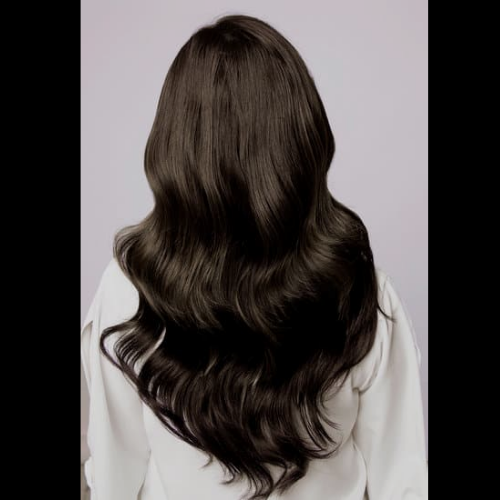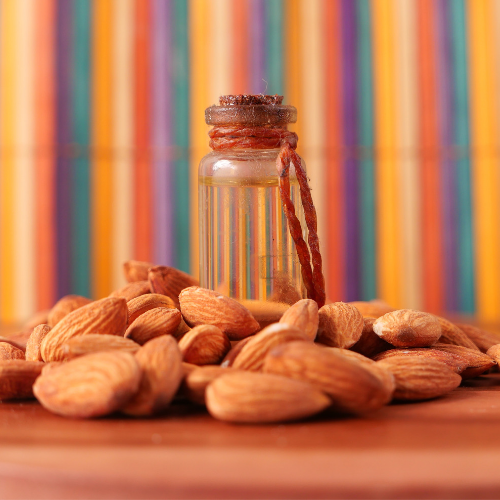Table of Contents
Introduction
Almond oil has been an treasured beauty secret for centuries. Derived from raw almonds, this nutrient-rich oil packed with vitamin, mineral and essential fatty acids that deeply nourish the scalp and hair. Whether you struggle for hair fall, frizz or dryness-almond oil for hair could be all your natural solution.
What is Almond Oil
Almond oil is supplied from sweet almonds through a cold-pressing method that retains most of its nutrients. It contains:
Vitamin E – a strong antioxidant
Omega-3 fatty acids – strengthen hair
Magnesium – encourage hair growth
Biotin – remediate keratin structure
Advantages of Almond Oil for Hair

1. Improve Hair Growth
Habitual massage with almond oil enhance blood circulation in the scalp, stimulating hair follicles and promoting faster hair growth.
2. Minimize Hair Fall
Its magnesium and biotin content helps decrease breakage and hair fall, strengthening hair from root to tip.

3. Manage Dandruff and Dry Scalp
Almond oil has anti-inflammatory and moisturizing qualities that soothe irritated scalps and decrease dandruff flakes.
4. Adds Shine & Softness
If your hair appears dull, a few drops of almond oil can add a natural shine, leaving it smooth and manageable.

5. Repairs Damage & Split Ends
The fatty acids in almond oil protect hair from damage caused by heating styling, pollution, or harsh shampoos.
How to use Almond Oil for Hair
1. As a Hair Massage Oil
Warm 2–3 tablespoons of almond oil.
Massage smoothly into the scalp using fingertips.
Leave it on for 1–2 hours or overnight.
Rinse with a mild shampoo.
2. As a Hair Mask
Combine almond oil with:
1 tablespoon of honey
1 egg yolk or 1 tablespoon yogurt
Apply from scalp to tips. Leave for 30 minutes & wash out.
3. As a Leave-In Serum
Take 2–3 drops of almond oil and rub it between your palms and apply to damp or dry hair to tame frizz and enhance shine.
Best Time to Use Almond Oil for Hair
For improve growth: Twice a week overnight.
For reduce dandruff: Alternate days, specifically during winter.
For shine & smoothness: Before styling or as a finishing serum.
Side Effects and Precaution
Usually almond oil is safe for all hair types. However:
Do a patch test if you have a nut allergy.
It may make hair greasy due to overuse.
Almond Oil vs Other Oils: Which is Better
| Oil Type | Use For | Texture |
| Almond Oil | Growth, smoothness, dandruff | Light and Non-greasy |
| Coconut Oil | Deep conditioning | Thick and Heavy |
| Castor Oil | Excessive Hair Growth | Thick and Sticky |
Conclusion
Almond oil is a natural powerhouse that offers several advantages for your hair. From encouraging hair growth to reducing dandruff and enhancing shine, it’s a must-have in your haircare routine. So if you’re looking for an suitable, chemical-free solution—try almond oil for hair and feel the change naturally!
Frequently Ask Questiones
Q1. Can I apply almond oil on oily hair?
Yes, almond oil is light and non-greasy, making it appropriate for oily hair too.
Q2. Is almond oil better for curly hair?
Utterly! It helps define curls and reduce frizz.
Q3. Can almond oil be combine with coconut oil?
Yes, mixing them improving nourishment and provides better results.
If you like this post, don’t forget to share it and leave a comment below!
